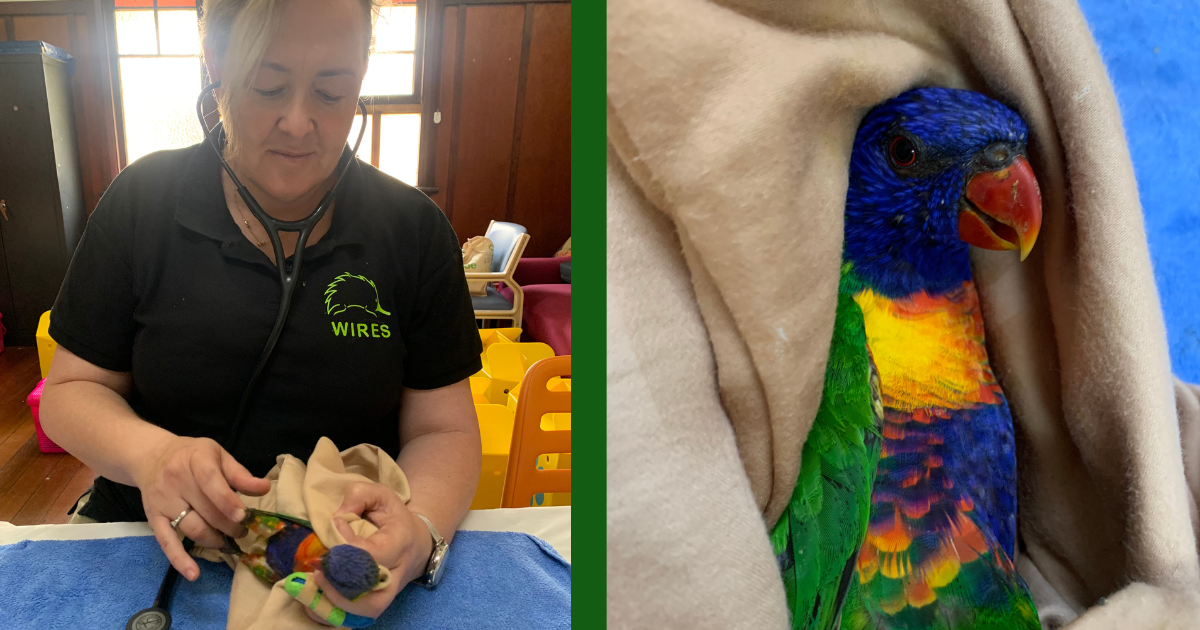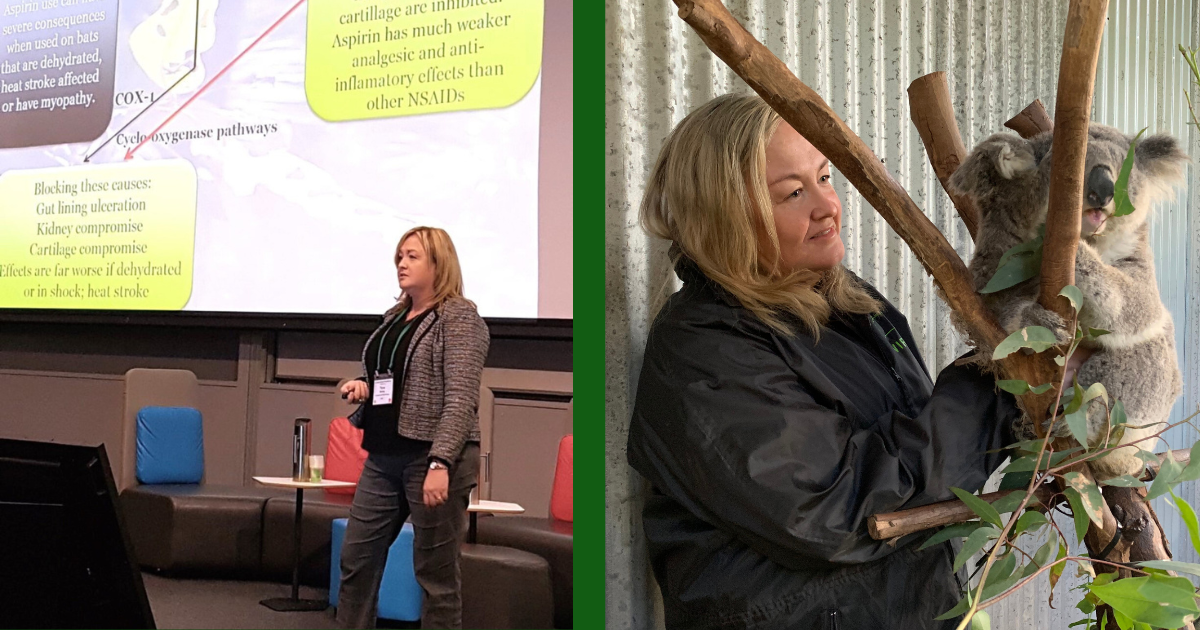
WIRES Vet Dr. Tania Bishop's Wildlife Journey
Friday, February 9, 2024
Every year, 11th February signifies the International Day of Women and Girls in Science.
This important day aims to rally for the equitable participation of women in scientific fields and celebrate the achievements of female scientists who are leading the way.
This past week, WIRES Wildlife Vet Dr Tania Bishop was on the front lines of the Lorikeet Paralysis Syndrome (LPS) outbreak, triaging and caring for rainbow lorikeets that had suddenly lost their mobility.
Rising to the challenge
Just three weeks ago, Dr. Bishop wouldn't have imagined providing life-saving treatment to hundreds of paralysed rainbow lorikeets. Tragically, wildlife disasters such as these progress frighteningly quickly.
In the three weeks since this outbreak was first observed, over 200 rainbow lorikeets came into the care of Grafton based WIRES Volunteer Robyn. After establishing a Drop-off site in Grafton, WIRES received a staggering total of over 300 birds in just three days.
Responding to the needs of our wildlife
Fortunately for our rainbow lorikeets, Dr Tania Bishop is an accomplished wildlife vet and a fierce advocate for and lover of Australia's iconic native animals.

"I have always felt very passionately about wildlife and the environment for as long as I can remember," Dr Bishop recalls.
I began volunteering at 13 as part of a Duke of Edinburgh award with a wildlife centre in a nearby national park. I became a wildlife carer as soon as I was old enough, starting with species like birds, possums, macropods, and non-venomous reptiles.
Feeling helpless when something went wrong with animals I cared for made me want to pursue veterinary science".
Finding a Foothold in the wildlife sector
During this time, Dr Bishop faced staunch resistance and negativity in a male-dominated field of study.
I was told that being a vet wasn't a suitable job for women and that girls wasted a place in veterinary medicine as "We all left when we had 'kids".
"Given my nature, this made me more determined to become a vet, specifically a wildlife vet".
Dr Bishop pushed through, graduated in 1999 and landed her first job as a professional in 2001, working at Currumbin Wildlife Hospital in Queensland.
Trials and Tribulations
Dr Bishop continued to progress her career and broaden her professional knowledge while becoming a mother.
"With a supportive partner and family, I sat my membership exams and passed with a 14-month-old toddler whilst pregnant with my second son. At that stage, there was no maternity leave pay, no obligation to provide flexible hours or to make provisions for pumping or breastfeeding."
And, to top it off, Dr Bishop had to negotiate passionately to retain her position as a wildlife vet while on maternity leave.

Turning a corner and thriving
Thanks to her perseverance, self-belief and love for native wildlife, Dr Bishop overcame these obstacles and forged a career in the wildlife sector.
Dr Biship has been the go-to wildlife veterinarian for several notable organisations long before her time at WIRES.
From creating flying fox heat-stress protocols for the Queensland State Government to leading research on best-practice wildlife rehabilitation, Dr Bishop has been a voice for our native wildlife, which high-level decision makers too often ignore.
Paying it forward
Dr Bishop's journey from teenage volunteer carer to wildlife sector thought leader has not been easy; however, it demonstrates the dedication needed to help protect our native species.
"I would be lying if I didn't say that it's taken a lot of hard work and tenacity to get where I am. We hurt every time we lose an animal, and some cases are simply heartbreaking. However, hard work and cooperation with great carers can lead to successful releases, some of the most rewarding things you can experience.
If the area of wildlife veterinary medicine and conservation is your passion, I would advise other women to reach out to people in the industry. Everyone was mentored and received help from someone else along the way, and I have always been grateful for the support many mentors gave me, so we all feel obligated to "pay it forward, so to speak".
Inspiring The Wildlife Community
Dr Tania Bishop is inspirational not only for women who are looking to enter the veterinary field but also for the tens of thousands of volunteer wildlife carers across Australia.
Whether it's simply calling WIRES when one has found an injured animal or educating yourself to become a wildlife rescuer, these acts of civil science culminate in a better understanding of our native species and what it takes to protect them for future generations.
Thanks to the collective knowledge of our passionate wildlife rescuers and carers, WIRES has given countless native animals a second chance at life in the wild.
Recent Posts
WIRES launches its first wildlife rehabilitation centre - Mullyang
WIRES Emergency Response in the wake of ex-tropical cyclone Alfred
International Women’s Day Volunteer Spotlight: Shelley
Tropical Cyclone Alfred – Emergency Wildlife Advice
Interview with WIRES Training and Development
Celebrating Women in Science: The Journey of Holly, Wildlife Conservationist and WIRES Team Member
